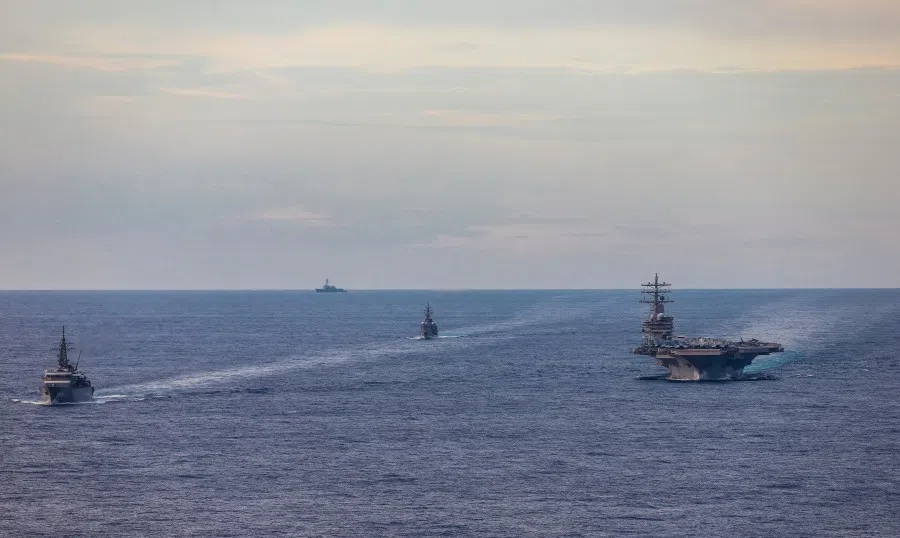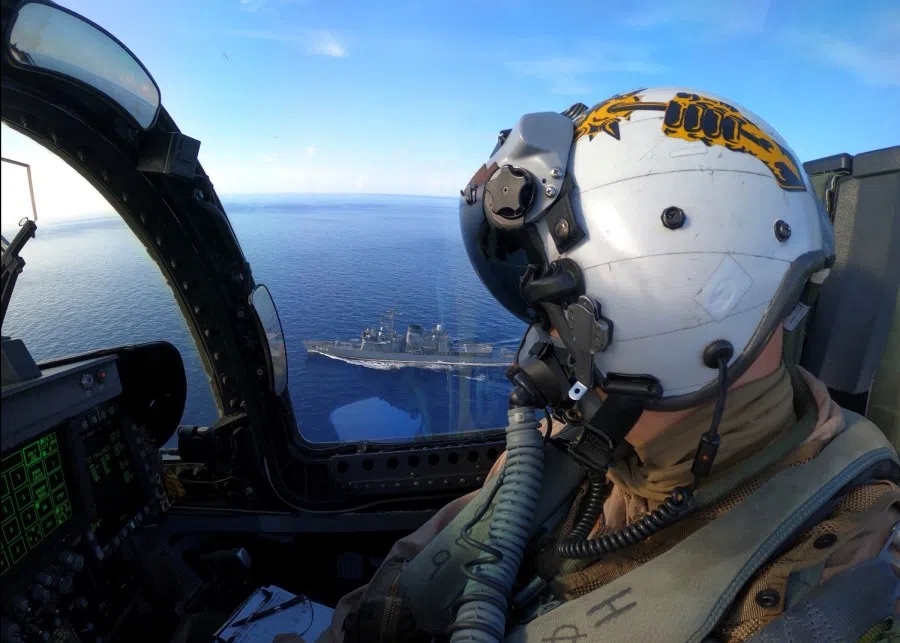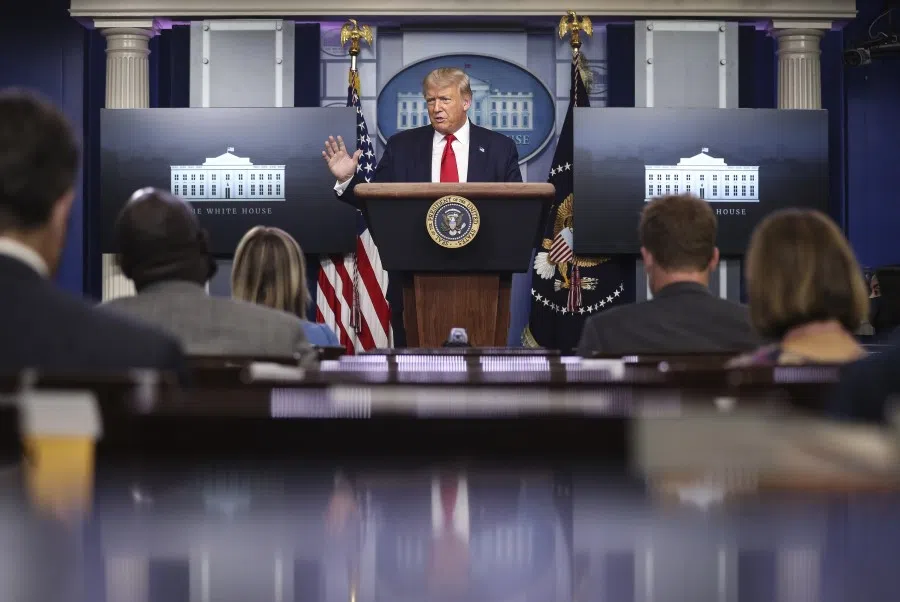Could China-US tensions in the South China Sea escalate into a hot war?
There is no doubt that tensions have risen in the South China Sea between China and the US. With deteriorating relations between the two countries and stakes high, especially for the US in an election year, how likely is it that there will be armed conflict in the South China Sea?

On 13 July, US Secretary of State Mike Pompeo released a strongly worded statement denying China's claims in the South China Sea (SCS), asserting that the world will not allow Beijing to treat the SCS as its maritime empire. Pompeo's statement changes the US government's neutrality on SCS issues for the first time. It says "Beijing's claims to offshore resources across most of the SCS are completely unlawful, as is its campaign of bullying to control them", and that "Beijing uses intimidation to undermine the sovereign rights of Southeast Asian coastal states in the SCS".
The US government's new stand on the SCS issue and the US military's recent frequent activities in the SCS have led to concerns of a possible maritime military conflict between China and the US. This is a pressing question that needs to be addressed.
Real chance of hot war breaking out in South China Sea
Indeed, looking at the overall situation in the SCS over the first half of this year, points of uncertainty and tension have increased. In terms of protection of maritime sovereignty, there have been multiple incidents of China's coast guard vessels pursuing, detaining, or confronting fishing and surveillance vessels from Vietnam, the Philippines, and Indonesia, with fishing vessels being sunk or capsized; in terms of administration and governance, the Chinese government announced in April the establishment of Xisha and Nansha districts in Sansha city in Hainan province, to strong protests from the Vietnamese government; in terms of military activities, apart from China stepping up military exercises, the US recently deployed two aircraft carriers for exercises in the SCS, while surveillance planes and tactical bombers have plied the skies above the SCS, putting unprecedented military pressure on China; in terms of diplomatic talks, it has been mainly negotiations between China and ASEAN on the Code of Conduct (COC) in the SCS.

Since China and ASEAN reached agreement on a single draft negotiating text for the COC in 2018, there has been no breakthrough. With less than 16 months left in the three-year period agreed on to finalise the COC, it seems a tall order for the COC to be signed and implemented as scheduled.
As these four areas show no sign of becoming more stable, there is a lot of attention on developments in the SCS, including constant discussion of whether there will be military conflicts between China and the US. Some feel that despite the increased tensions in the SCS, there is still some way to go before that stage. Former US Marine Corps intelligence officer Scott Ritter said in an opinion piece for RT: "While some feverish commentators took Pompeo's words as setting the legal foundation for the use of military force against Beijing, the truth is that neither the Marine Corps nor the US Navy are able to successfully execute a China-beating military campaign in the SCS today - and any such capability is years away."
A close look at recent US military activities and China-US military relations would indicate that the SCS situation is moving towards the brink of conflict.
In an article on Vzglyad online, Russian military expert Alexei Leonkov said all decisions by the US have to be based on the fact that the main route for transporting goods and goods from Asia to Europe passes through the SCS and the Strait of Malacca, and the one who controls this area will gain huge influence in the entire Indo-Pacific region and the world. As "the Americans simply do not have enough strength" to hold long-term control over the SCS, "no serious US-Chinese confrontation is expected in this region in the near future".
I have my reservations about this. A close look at recent US military activities and China-US military relations would indicate that the SCS situation is moving towards the brink of conflict.
Growing signs of aggression
First, looking at recent US military activities, two US carrier strike groups carried out dual carrier operations in the SCS in early July, and subsequently returned to those waters on 17 July. Such a move is usually regarded as a standard battle procedure; even if it is not for battle, it would be seen as the US preparing for military action in response to the tension in the region.
In addition, US E-8C surveillance planes and B-52 bombers have been entering the skies above the SCS, with the E-8C planes as close as 134 kilometres from Guangdong's coastal areas in its close-range surveillance of Hainan and the Guangdong coast. China has carried out air and sea monitoring of US actions, and has conducted exercises in the waters in question. With higher chances of military encounters, there is also a greater risk of misunderstandings and misjudgements.
The militaries of China and the US are completely separate, with no interdependence whatsoever. And so, when both countries are hostile, their armies will not be friendly.

Secondly, as China-US relations worsen, it is also difficult for their military to maintain normal communications, and previous agreements may be no more. In terms of the SCS, in November 2014, China and the US made major progress in building a crisis prevention and management system, as marked by the signing of the Memorandum of Understanding on Notification of Major Military Activities and Confidence-Building Measures Mechanism, as well as the Memorandum of Understanding Regarding the Rules of Behavior for Safety of Air and Maritime Encounters.
In 2015, China and the US tagged addenda to these memoranda, on military crises notification and guidelines on safe conduct in air encounters, while agreeing to discuss other addenda. However, with heightened tensions in the SCS, it seems difficult for China and the US to keep to previous agreements, especially with current hostilities between both countries, which will only add to hostilities between their military. It must be noted, however, that bilateral military relations are fundamentally different from trade relations.
The militaries of China and the US are completely separate, with no interdependence whatsoever. And so, when both countries are hostile, their armies will not be friendly. At the moment, the communications and crisis management system between China and the US militaries have been weakened, contributing to the current tensions in the SCS. Without restraint, there is a higher chance of a conflict breaking out between both militaries.
Technically, one feasible method might be to "declare war" on another country, to deflect from a domestic crisis.
Finally, it is still very uncertain whether US President Donald Trump will be re-elected this year. In a recent interview with US media, Trump did not commit to accepting the results if he lost, which is worrying. If he does lose, it is not unthinkable that Trump may take "extraordinary measures" to hold on to power during the transitional period between the end of the primaries on 5 November this year and the swearing-in of the new president on 20 January 2021. Technically, one feasible method might be to "declare war" on another country, to deflect from a domestic crisis.

This year's pandemic has had a huge impact on Trump's re-election efforts; his chances were good previously, but the sudden pandemic has reduced those chances significantly. For Trump, much as he wants to be re-elected, the question is no longer "what else can he do", but "what else can't he do". In the US political arena where "hawks" rule, the current discussion on the possibility and consequences of military conflict with China is no longer some secret. The question is when, how hard, and how long it will be.
In his 1996 book The Clash of Civilizations and the Remaking of World Order, US academic Samuel Huntington boldly imagined a scenario where the next military conflict between powers would break out in the SCS in 2010, with the US sending a strike carrier team to the SCS to protect Vietnam from being invaded by China, and China criticising the US for violating sovereignty in the SCS, and attacking the US carriers.
Hopefully, Huntington's imagined scenario from 25 years ago will not become a reality.




![[Big read] When the Arctic opens, what happens to Singapore?](https://cassette.sphdigital.com.sg/image/thinkchina/da65edebca34645c711c55e83e9877109b3c53847ebb1305573974651df1d13a)
